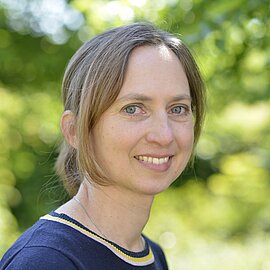In the beginning of September, the European Commission has proposed a common European list of safe countries of origin. Previously Germany already classified Serbia, Macedonia and Bosnia-Herzegovina as safe. The Commission now proposes to add Kosovo to the list. In Germany this classification is politically controversial. Researchers of the Leibniz Institute of Agricultural Development in Transition Economies (IAMO) clarify in the IAMO Policy Brief 24 titled ‘Mass exodus from Kosovo: How a struggling state loses its citizens’ the drivers of the mass migration from Kosovo, which reached an extreme amplitude in the winter 2014/15. These migration drivers continue to exist unchanged, irrespective of any classification of Kosovo as a safe or unsafe country of origin.
The analysis is mainly based on interviews with experts and with Kosovar migrants, which the agricultural economists of IAMO conducted in the beginning of 2015. Out-migration has a long tradition in Kosovo, but leaving the country was never a welcome prospect. In particular, rural communities sent out migrants when their traditional livelihood base, the farm, could no longer secure the livelihood of the large traditional households. Suppression and the Kosovo war led to a large number of refugees in the 1980s-1990s. After the war ended in 1999, it looked much as if the era of mass migration had come to an end. Many Kosovars returned to their home country full of hope for a better future. The Kosovar state failed to maintain the enthusiasm and hope of its young nation and turn it into sustainable development. Instead, a lack of perspectives and accumulated frustration about the existing political caste, nepotism and corruption drive out even middle class people. Key driver of the exodus is a struggling Kosovar state so the researchers. Furthermore they point out that the extent and timing of the migration wave was closely connected with facilitated travel conditions and incentivising rumours that caused a snowball effect.
Dr. Judith Möllers, researcher at IAMO and one of the authors of the study, states that: ‘Changes in the asylum and visa regimes are recommended, but a smart timing of measures is important. Temporary, seasonal, or circular legal work could provide a suitable opportunity to offer legal access to work without burdening Kosovo with massive brain drain.’ While there is no final proof that temporary or circular migration is a ‘triple win’ policy tool for managed migration (benefitting the destination country, the migrant and the country of origin), it seems well-suited to the traditional migration patterns of Kosovo. In the country, poor households will benefit from remittances, and the labour market could be relieved to allow for substantial reform. For the host societies it is important to understand that yes, Kosovars desire access to the EU economic and social systems, but they want it through employment. In that sense, legal travel and migration opportunities are the better solution. It would constrain the pressure to migrate and asylum applications are likely to decrease toward zero immediately.
The IAMO Policy Brief 24 titled ‘Mass exodus from Kosovo: How a struggling state loses its citizens’ is available for download on the IAMO webpage:
http://www.iamo.de/fileadmin/documents/IAMOPolicyBrief24_en.pdf. The publication is also available in German and Albanian.
Text: 3.607 characters (with spaces)
More information
Möllers, J., Arapi-Gjini, A., Xhema, S., Herzfeld, T. (2015): Mass exodus from Kosovo: How a struggling state loses its citizens. IAMO Policy Brief No. 24, Halle (Saale).
IAMO Policy Briefs
The publication series IAMO Policy Brief is published at irregular intervals and provides a platform for research findings and outcomes of the Institute of Agricultural Development in Central and Eastern Europe (IAMO) with social relevance to be communicated accessibly and entertainingly to a broad audience. Key target groups include political decision-makers, mass media representatives and the general public.
